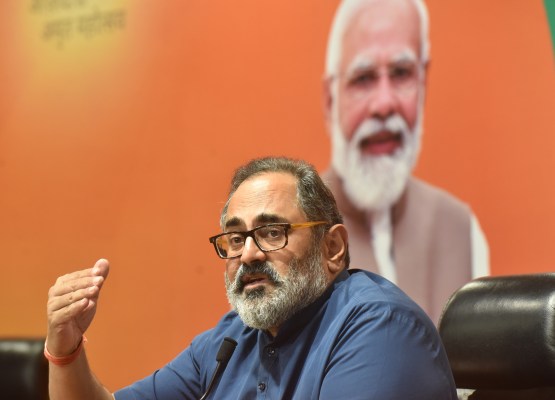Previous governments’ incompetence crippled India’s semiconductor growth, deputy IT minister says | TechCrunch

In an indictment of past administrations, a senior Indian minister blamed their strategic and political vision and “a big dose of incompetence” as significant contributors to the country’s underdeveloped semiconductor industry.
“India has missed the bus repeatedly on electronics and semiconductors. There was a lack of strategic and political vision and a big dose of incompetence,” Rajeev Chandrasekhar (pictured above), deputy minister for IT, told a group of reporters Thursday.
“Fairchild semiconductors, which is the precursor to Intel, came to India in 1957 for a packaging unit and we chased them away. That packaging unit went on to become Asia’s largest packaging hub in Malaysia. We set up a fab for silicon and germanium transistors that had shut down. India’s major VLSI facility, Semi-Conductor Laboratory (SCL), perished, as a mysterious fire in 1989 halted production until 1997. In 1987, India was just two years behind the latest chip manufacturing technology. Today, we are 12 generations behind – this is how far behind as a nation on semiconductors,” said Chandrasekhar, who has been a major proponent of India’s foray into chips.
As part of its strategic push into high-value manufacturing, prime minister Narendra Modi’s administration has targeted the global semiconductor market. The past two years saw India unveil considerable production-linked incentives to attract investment in critical sectors, from electronics to automobiles and solar energy.
“The demand for electronics, digital products and services is only intensifying. Electronics is at the core of our lives today and semiconductors in turn at the core of electronics. Prime minister Shri Narendra Modi has rebuilt our electronics ecosystem and we are one of the world’s fastest growing electronics manufacturers. We were almost nothing in 2014 in the semiconductor ecosystem and today we are increasingly becoming a big presence in the global value chain for electronics,” said Chandrasekhar, who also serves as a union minister for State for skill development and entrepreneurship.
These efforts are showing signs of progress: U.S. memory chip firm Micron announced last month that it will invest up to $825 million to build a semiconductor plant in India. Apple has also accelerated production of its iPhone 14 lineup in the country. But there are also some concerns. A multi-billion-dollar venture between Foxconn and Indian conglomerate Vedanta ended earlier this month. Indian officials blamed “internal issues” between the firms for the discontinuation of the joint venture and said the development will not impact India’s semiconductor goals. Foxconn has since said that it remains committed to India and will apply to avail the incentives.
“Based on our discussions with govt officials and industry participants, we believe India possesses several key ingredients for success such as rising demand, low manufacturing cost, large fiscal support and strategic goodwill with the West; although, might need to strengthen supply chains and tech partnerships,” Jefferies analysts wrote in a recent note.




